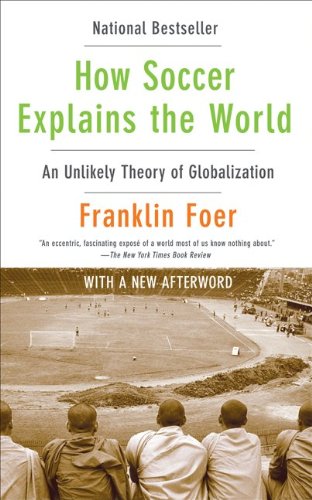Soccer Poems Biography
Source(google.com.pk)In A Precocious Autobiography, the poet Yevgeny Yevtushenko gives an account of the first three decades of his life—hence, the title “precocious”—before most people, especially artistic creators, go through the most productive part of their life. The reason for the poet’s premature effort is undoubtedly his conviction that the experiences of his early years, coupled with important changes in the life of his country (the death of Joseph Stalin and the emergence of the postwar generation), are worth telling. He begins with the simple fact that both of his grandfathers were accused as “traitors” and “spies” and vanished in the concentration camps. His paternal great-grandfather was deported from Ukraine to Siberia for rebelling against his landlord. His maternal grandfather was born in Latvia. By stating that “revolution was the religion” of his family, Yevtushenko underscores the tragedy of the demise of his grandfathers, who were old revolutionaries.
The incompatibility of Yevtushenko’s parents—who met as students at the Geological Institute, married, but soon divorced—was another decisive factor in the poet’s life. He spent his childhood torn in his loyalty to his parents. This, along with the war, made his earliest years difficult, although he spent some happy days in his native Siberia, close to nature and to the simple, hardworking people. Yevtushenko grew up on the streets, fighting with his peers, doing poorly in school, and at times being expelled for speaking the truth, a habit that he inherited from his Siberian ancestors.
Yevtushenko discovered early that he liked writing poetry despite receiving bad marks in grammar. He also had a desire to become a professional soccer player. He published his first poem in the magazine Soviet Sport and celebrated it by getting thoroughly drunk. The next day, he had the first trial as a goalie for a soccer team, but, because of his hangover, he saw two balls coming at him at the same time and failed the test; this failure prompted Yevtushenko’s decision to stay with poetry. His rise as a poet was slow but steady. At first, he wrote all kinds of inferior, impersonal verses, but later he turned to writing about his own feelings and thoughts.
Yevtushenko also became increasingly aware of the social problems besetting his society, and he began to voice his concerns. Stalin’s death in 1953 was a turning point in his thinking. He was appalled at the authorities’ insensitivity, allowing many people to be crushed to death during the commotion at the funeral, and saw for the first time the inhumane nature of the government. He decided to speak the truth. As more and more of his books were published and as he read his poems before thousands at poetry gatherings, he became one of the “angry young men” and a spokes-person for his generation, a role that he continued to play.
Analysis
Yevtushenko’s autobiography is more than an account of his early years. Even though the book...
(The entire section is 1253 words.)
Soccer Poems Poems About Love For Kids About Life About Death About Friendship For Him About Family Tumblr For Her About Nature

Soccer Poems Poems About Love For Kids About Life About Death About Friendship For Him About Family Tumblr For Her About Nature

Soccer Poems Poems About Love For Kids About Life About Death About Friendship For Him About Family Tumblr For Her About Nature

Soccer Poems Poems About Love For Kids About Life About Death About Friendship For Him About Family Tumblr For Her About Nature

Soccer Poems Poems About Love For Kids About Life About Death About Friendship For Him About Family Tumblr For Her About Nature

Soccer Poems Poems About Love For Kids About Life About Death About Friendship For Him About Family Tumblr For Her About Nature
Soccer Poems Poems About Love For Kids About Life About Death About Friendship For Him About Family Tumblr For Her About Nature
Soccer Poems Poems About Love For Kids About Life About Death About Friendship For Him About Family Tumblr For Her About Nature

Soccer Poems Poems About Love For Kids About Life About Death About Friendship For Him About Family Tumblr For Her About Nature

Soccer Poems Poems About Love For Kids About Life About Death About Friendship For Him About Family Tumblr For Her About Nature

Soccer Poems Poems About Love For Kids About Life About Death About Friendship For Him About Family Tumblr For Her About Nature

Soccer Poems Poems About Love For Kids About Life About Death About Friendship For Him About Family Tumblr For Her About Nature

Soccer Poems Poems About Love For Kids About Life About Death About Friendship For Him About Family Tumblr For Her About Nature

Soccer Poems Poems About Love For Kids About Life About Death About Friendship For Him About Family Tumblr For Her About Nature

No comments:
Post a Comment